#stuart ullman
Explore tagged Tumblr posts
Text






have you done your daily click
#best character named x#poll#poll game#stuart little#stu price#stuart despicable me#stuart ullman#stuart minkus#stu macher#stuart minions#the hangover#despicable me#the shining#boy meets world#scream
28 notes
·
View notes
Text
12 dicembre … ricordiamo …
12 dicembre … ricordiamo … #semprevivineiricordi #nomidaricordare #personaggiimportanti #perfettamentechic
2023: Mario Valdemarin, attore italiano attivo principalmente in teatro, nel cinema ed in televisione fra gli anni cinquanta e gli anni novanta. Fu anche un noto interprete di fotoromanzi. Da giovane con amici studenti si occupò di teatro e di cinema. Agli inizi della carriera di attore ebbe una certa notorietà come campione nella trasmissione televisiva di Mike Bongiorno Lascia o raddoppia?. Per…
#12 dicembre#Ann Reinking#Anne Baxter#Antonio Cifariello#Audrey Mary Totter#Audrey Totter#Charles Van Dell Johnson#Douglas Fairbanks#Eleanor Boardman#Fay Compton#George Montgomery#Jack Cassidy#John Joseph Edward Cassidy#Julius Elton Thomas Ullman#Lilian Emmeline Mackenzie#Mario Valdemarin#Morti 12 dicembre#nato George Montgomery Letz#Odile Marie-Josèphe Léonie Bérard#Odile Rodin#Pierre Yantorny#Pietro Iantorni#Rudolf Ernst Paul Schündler#Rudolf Schündler#Stuart Margolin#Tallulah Bankhead#Tallulah Brockman Bankhead#Van Johnson#Vicente Fernández
0 notes
Note
This thought kept occuring to me but I finally realized that Theo reminds me a bit of Stuart Ullman from The Shining (the novel version)


Stuart Ullman (novel version) is not a character one would usually think to make a reference towards and I love you for that. I completely see your vision from this first paragraph.

This too. Theo IS a bit of a bastard. Thank god he's a broke hermit NEET so he doesn't have any employees who have to deal with him.
#theo#asks#my draws#doodles#theo only WISHES he was 5'5'' though#i am so pleased to have my character compared to one who is described as an “officious little prick”#that's the kind of energy i'm aiming for. obnoxious bit antagonists (but I give them the spotlight because I love those kinds of guys)#now that I have this pdf in my possession maybe i ought to actually read this book...#aah... makes me wish i had a greater excuse to describe theo in text. detail his unpleasant visage in purply prose#it would read like the opening from My Immortal (limpid tears goth clothes etc etc) but I would have fun
122 notes
·
View notes
Text
Lost, but Not Forgotten: What Price Beauty? (1925)
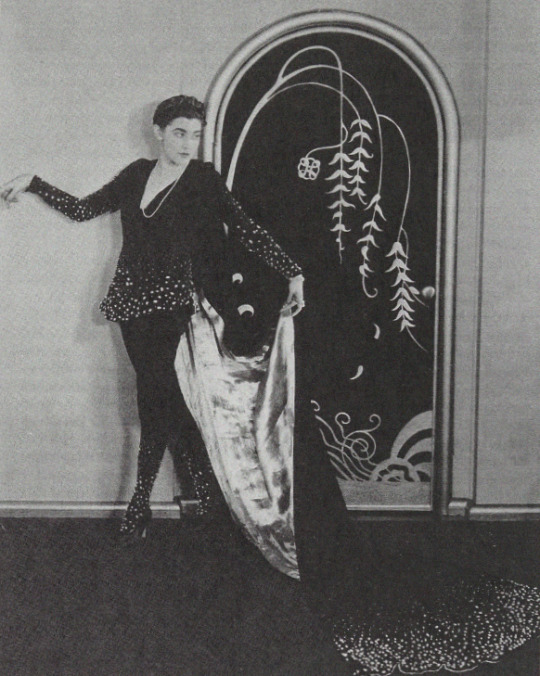
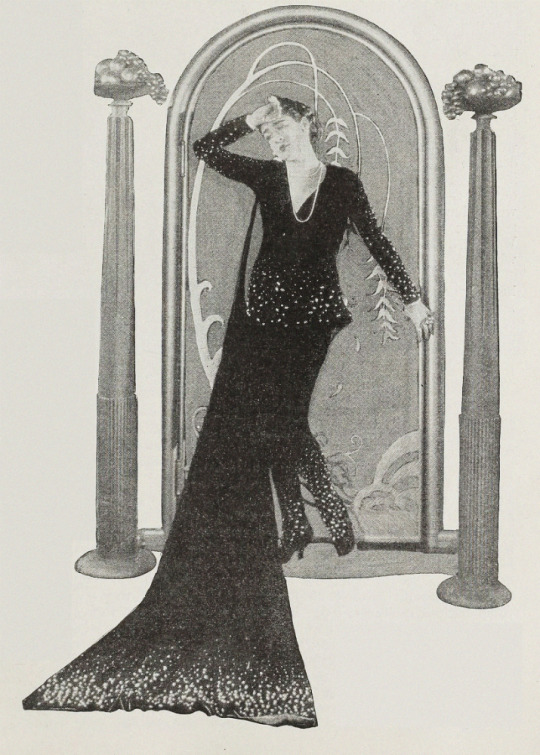
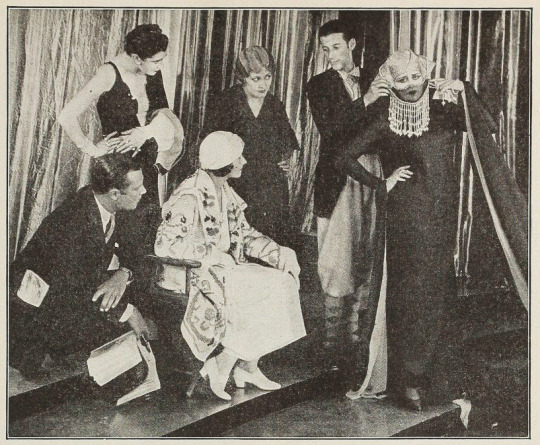
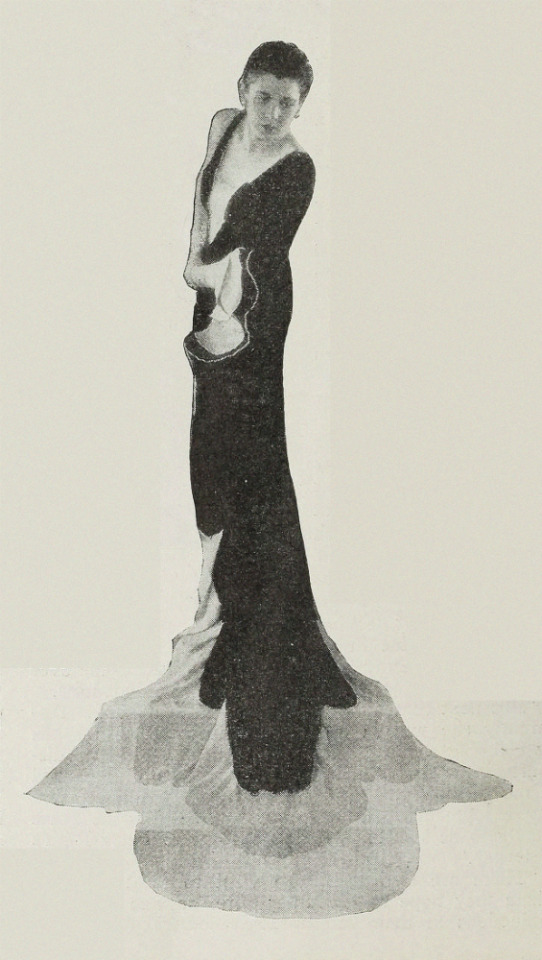
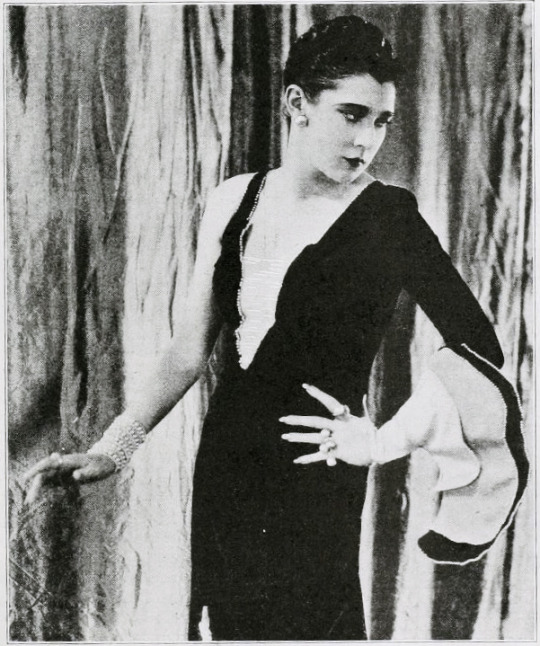
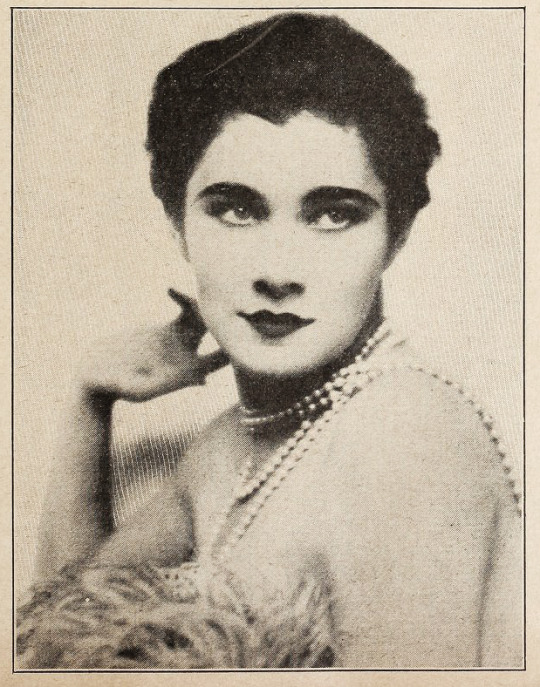
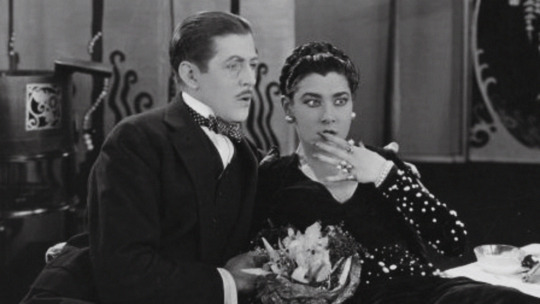
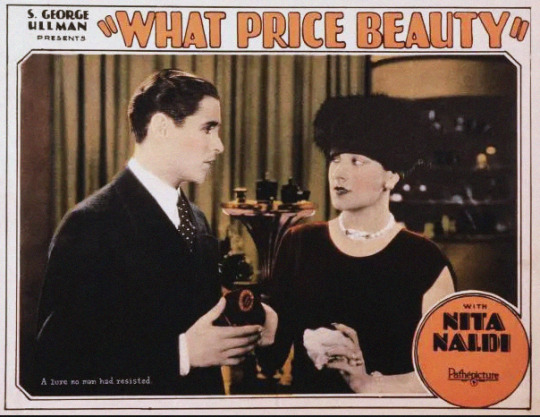
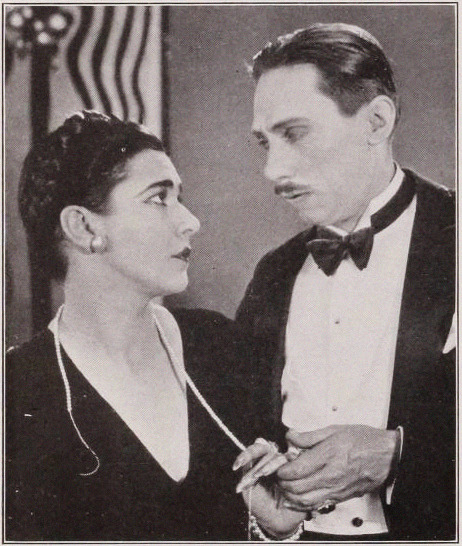
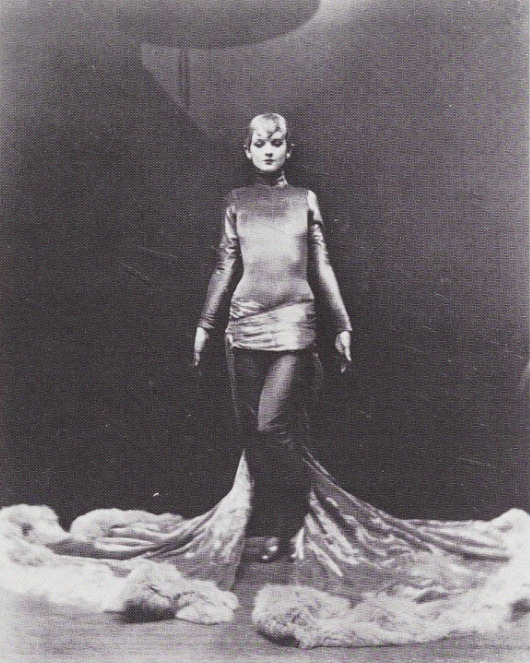
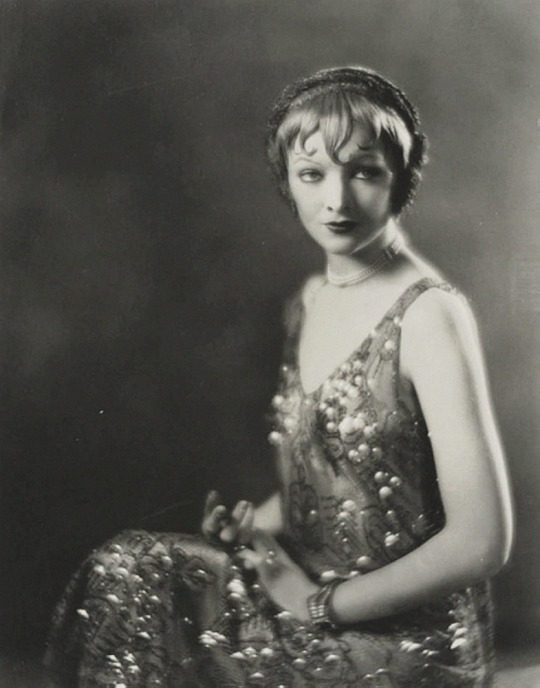
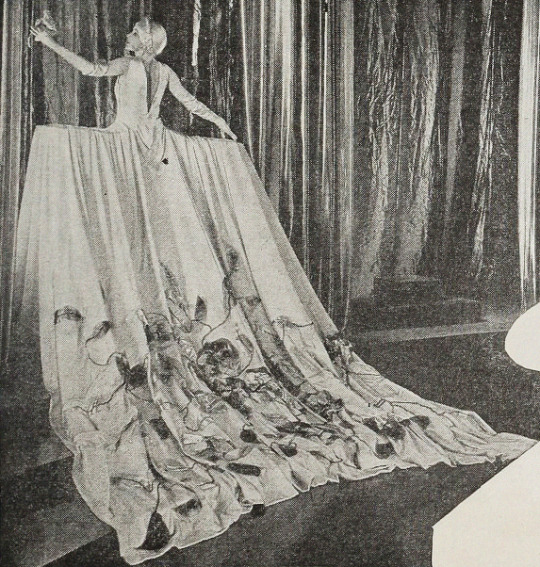
Direction: Thomas Buckingham
Scenario & Story: Natacha Rambova
Titles: Malcolm Stuart Boylan
Production Manager: S. George Ullman
Camera: J. D. Jennings
Art Direction: Natacha Rambova
Production Design: William Cameron Menzies
Costume Design: Adrian
Studio: Circle Films (Production) & Pathé Exchange (Distribution)
Performers: Nita Naldi, Pierre Gendron, Virginia Pearson, Dolores Johnson, Myrna Loy, Sally Winters, La Supervia, Marilyn Newkirk, Victor Potel, Spike Rankin, Rosalind Byrne, Templar Saxe, Leo White Maybe: John Steppling, Paulette Duval, Dorothy Dwan, and Sally Long
Premiere: None, general release: January 22, 1928
Status: Presumed entirely lost.
Length: Variously reported as 5000 and 4000 feet (more commonly listed as 4000) or 5 reels
Synopsis (synthesized from magazine summaries of the plot):
Mary, a.k.a. “Miss Simplicity” (Dolores Johnson) is a starry-eyed, country-to-city transplant. She works at a beauty shop operated by a glamorous matron (Virginia Pearson) and owned by the young and handsome Clay (Pierre Gendron).
Mary is in love with Clay, but doesn’t have the nerve or feminine wiles to woo him. The uber-sophisticated Rita (Nita Naldi), however, is chock full of nerves and wile. Rita’s fancy clothes and perfumes and advanced flirting skills leave Mary feeling destined to fail at winning Clay’s amorous attention.
These feelings sublimate into an expressionistic dream for Mary, where she finds herself transformed into a sophisticate like Rita. Her boss is seen as a magnificent wizard, converting her clients into archetypes of glamour: exotic types, flappers, and sirens. Her competition, Rita, is seen as a bewitching spider.
In the end, surprising Mary, it turns out that her fresh-faced, unassuming charm is more appealing to Clay than Rita’s more practiced charm.
Additional sequence(s) featured in the film (but I’m not sure where they fit in the continuity):
Scene of the trials and tribulations of a fat woman trying to “reduce”
Points of Interest:
Only one quarter of Nita Naldi’s Hollywood films have survived (7 extant titles/21 lost or mostly lost titles).
——— ——— ———
What Price Beauty? was the first and only film produced under Natacha Rambova’s own company. Coordinating production for the film was the business manager for Rambova and her husband Rudolph Valentino, S. George Ullman. The couple met Ullman when he was working for Mineralava beauty products, the sponsor of their 1922-3 dancing tour.
When Rudolph Valentino entered into a contract with United Artists, said contract reportedly stipulated that Valentino-Rambova were not a package deal. Therefore, Rambova could not collaborate with Valentino on his productions for United. Possibly as consolation, Ullman funded a production for Rambova while Valentino worked on The Eagle (1925, extant).
For Rambova, What Price Beauty? was meant to be a proving ground for her idea that an artistic film could be made on a modest budget. She also wished to remind people that she was a skilled artist in her own right.
In an interview in Picture Play Magazine from August 1925, Rambova asserts:
“…I do not want the production in any sense to be referred to as high-brow or ‘arty’. My reputation for being ‘arty’ is one of the things that I have to live down, and I hope by this picture, which is a comedy—even to the extent of gags and hokum—to overcome that idea. “A woman who marries a celebrity is bound to find herself in a more or less equivocal position, it seems, and her difficulties are only increased when she happens to have had some artistic ambitions of her own before her marriage. I am afraid that those who have accused me of meddling in my husband’s affairs forget that I enjoyed a certain reputation and a very good remuneration for my work as well before I became Mrs. Valentino.”
“What I desire personally is simply to be known for the work which I have always done, and that has brought me a reputation entirely independent of my marriage.”
There isn’t a vast amount of information on what exactly prevented WPB from gaining release in a timely fashion. If the film was truly nothing more than a ploy to separate Rambova from Valentino, that would be an absurd waste of time, money (~$80,000 in 1925 USD), and talent—Rambova employed soon-to-be famous designer Adrian for costumes and William Cameron Menzies for set decoration. Not to mention that, in front of the camera, Nita Naldi was still a popular star and the Rambova discovery, Myrna Loy, made her quickly hyped debut.
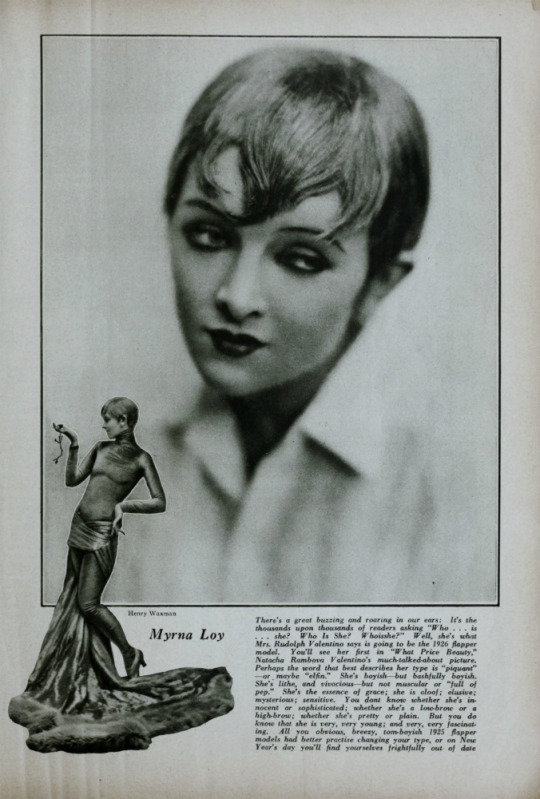
When Pathé finally purchased WPB for distribution in 1928, they did very little to promote the film. Naldi had moved on from the film industry—as had Rambova. And, while Loy hadn’t become the huge star we know today by January of 1928, Warner Brothers had already given her top billing in a number of films. Pathé barely mentions Loy’s role in the little promotion they did do.
To put WPB’s release in the context of Rambova’s personal/professional biography (which you can read more about here):
June/July 1925 – WPB is completed, Rambova and Valentino separate (in July according to Rambova’s mother as quoted in Rambova’s book Rudy)
August 1925 – Rambova leaves Hollywood for New York City, reportedly to negotiate distribution for WPB. She and Valentino would see each other in person for the last time. Rambova leaves NYC for Europe.
September 1925 – Valentino draws up a new will disinheriting Rambova
November 1925 – Rambova returns to the US to act in a film, When Love Grows Cold (1926, presumed lost), a title which Rambova objected to
December 1925 – Rambova files for divorce
August 1926 – Valentino dies
January 1928 – WPB is finally released with no fanfare by Pathé
In my research for my Rambova cosplay, the suspicious production/release history for this film stood out to me. I hoped that I might find some reliable evidence of whether WPB was a consolation prize and/or a scheme to keep Rambova and Valentino apart. Honestly and unfortunately, circumstantial evidence does support it!
After poring over what few contemporary sources cover WPB, there seemed to be no plan in place for distribution as the film was in production. United Artists, at whose lot the film was shot, claimed to have nothing to do with its release. Ullman had a news item placed about negotiating the distribution rights in the East. However, in Ullman’s own memoir, he admits that when he travelled to New York with Rambova, it was in a personal, not professional capacity—navigating the couple’s separation. (Ullman’s book contains many disprovable claims and misrepresentations, so anything cited from it should be taken with a grain of salt.) That said, Ullman’s failure to secure even a modest distribution deal for WPB in a reasonable timeframe speaks to how ill-founded Valentino’s and Rambova’s trust in his business acumen was.
WPB cost $80,000 to produce, which converts to $1.4 million in 2023 USD. While that wasn’t an outrageous budget for a Hollywood feature film at the time, especially one with such advanced production value, it’s certainly an absurd cost if the goal was only to separate a bankable star from his wife and collaborator.
A close friend and employee of Valentino and Rambova, Lou Mahoney, recalled in Michael Morris’ Madam Valentino:
“The picture was previewed at a theater on the east side of Pasadena, and Mahoney remembered the audience reaction as positive, but, thereafter, What Price Beauty? was consigned to oblivion. Mahoney knew why: ‘No help came from anyone, no thoughts of trying to get this picture properly released. No help came from Ullman, Schenck, or anybody else. Their whole thought was that if the picture were a success, Mrs. Valentino would be a success. She would then start producing under the Rudolph Valentino Production Company. But this nobody wanted—except herself, and Mr. Valentino.’”
——— ——— ———
The few reviews from 1928 that I was able to find are not very complimentary of WPB. The critics seem thrown by the film’s tone or genre—reading it as a drama. (Part of that is Pathé’s fault as they listed it as one.) But, according to sources contemporary to WPB’s production, it was intended to be a farcical satire of the beauty industry and social expectations of feminine beauty. Given the simple story, the intentional typage of characters (“The Sport,” “The Sissy,” and “Miss Simplicity”), and the over-the-top-but-on-a-budget art design of WPB, all signs point to high camp. In 1925 as well as 1928, the stodgier side of the critical spectrum would likely fail to see its appeal.
It’s a true shame we can’t find out for ourselves how good, bad, or campy WPB was as of yet, but here’s hoping the film resurfaces!
More about Rambova
GIFs of some of her design work on film
☕Appreciate my work? Buy me a coffee! ☕
Transcribed Sources & Annotations over on the WMM Blog!
#1920s#1925#1928#natacha rambova#nita naldi#cinema#silent cinema#american film#independent film#classic film#classic movies#film#silent film#silent movies#silent era#classic cinema#silent comedy#lost film#film history#history
27 notes
·
View notes
Note
Smart boy. Was that the point of the book?
You can't read forever.
Someone is going to slip eventually.
Or i could simply pull up those old memories.... of him... his habd around your neck. That damned feeder. Hurt you and you hid it.
Your a falure mortime...
"Ma".... that's new...
I'll be waiting for when you talk. Like I know you will... like you always have.
-💐
I am a man you can bring your problems to, that suit said to the paying customer. To the hired help it spoke more curtly: This had better be good, you. There was a red carnation in the lapel, perhaps so that no one on the street would mistake Stuart Ullman for the local undertaker.
As he listened to Ullman speak, Jack admitted to himself that he probably could not have liked any man on that side of the desk-under the circumstances.
Ullman had asked a question he hadn't caught. That was bad; Ullman was the type of man who would file such lapses away in a mental Rolodex for later consideration.
2 notes
·
View notes
Text
Sinopsis de la película "El Resplandor"
En esta película se cuenta la historia de la familia Torrance, que está integrada por Jack, Wendy y Danny. Danny es un niño de cinco años que cuenta con un poder que le permite ver espíritus y visualizar eventos pasados, presentes y futuros; él denomina a este poder como "resplandor".
Debido a que Jack Torrance fue despedido de su anterior trabajo como profesor, él decidió aceptar trabajar como cuidador del Hotel Overlook. Jack y su familia debían quedarse en aquel hotel durante seis meses, estando aislados por la nieve y encargándose de cumplir con las indicaciones que Stuart Ullman, el gerente del hotel, le brindó a Jack para que así pueda mantener en buen estado el hotel.
Al principio, en aquel hotel la familia Torrance vivía tranquilamente. Sin embargo, a medida que pasaba el tiempo, la familia Torrance poco a poco empiezó a experimentar sucesos extraños en aquel hotel. Danny es el integrante de esta familia que más sucesos extraños ha experimentado, y esto es debido al resplandor.
En este lujoso hotel han ocurrido muchos incidentes relacionados a asesinatos y suicidios que han cometido anteriores cuidadores. La famila Torrance deberá encontrar una forma de escapar de este hotel antes de que experimenten incidentes similares
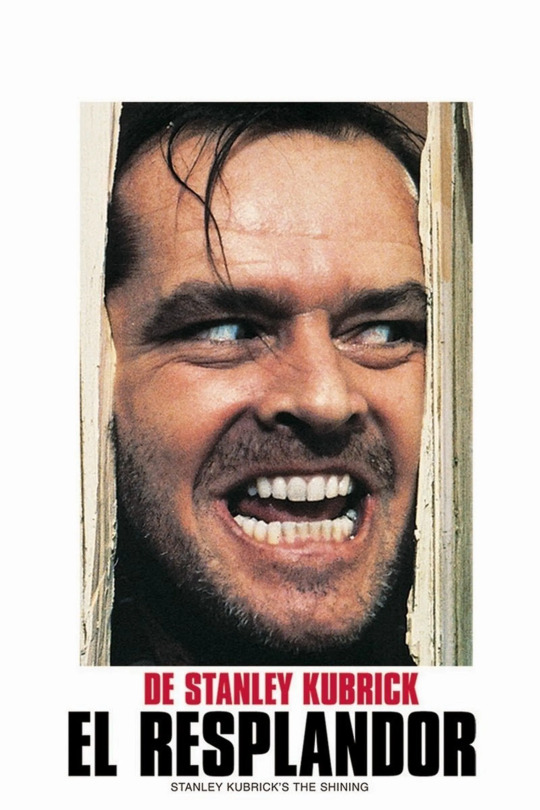
0 notes
Text
The Shining, movie look-back: The Interview
Note that I am using the longer, American/International cut of the movie – while the shorter, European cut was apparently best liked by Kubrick and by a good part of the audience, the International one has more elements to comment and analyze the movie, while revealing Kubrick’s first view of the movie and adding depth to the whole story.
# The music. I think it is no need to say that the music is one of the greatest powers of this movie. The songs chosen and the musical pieces composed for the movie are fantastic and add entire new dimensions to scenes, in particular during the most eerie and otherworldly events.
# The second great power of the movie, is its visuals, its cinematography. And these wide opening shots are not only beautiful but also very important to the themes of the movie. You see, this opening scene reveals the wideness, the largeness, the vastness of the area in which the Overlook is located. Immense forests, lakes and mountains, devoid of human buildings or life, highlighting the isolation of the hotel. Not just of the hotel, but also of the human characters: Jack’s car is tiny, minuscule compared to these great landscapes it crosses. It feels crushed, it almost disappears, you can easily miss it. Of course, this scene will be called-back by the scene of Jack looking at the maze miniature and seeing his family as tiny dots inside the hedges. The entire movie is about being isolated in a vast and empty world – a tiny car crossing enormous cliffs. A small building lost in the middle of the mountains. One small family inside an enormous, labyrinthic hotel. Or even one tiny episode into a longer, vaster, darker history – the Torrances being just one footnote in the morbid history of the Overlook.
# Of course, the great blue sky and the good weather opposes the white-greyness of the thick winter that will trap the Torrances, and the darkness of the winter nights. The yellow color of the car also brings to mind the yellow tennis ball that is used several times later in the movie.
# Given the camera’s movements, and the strange music (which includes bits of human voice), the audience can only feel like a flying, disembodied, ghostly presence following the car across the wilderness – the same way later Jack acts as a giant looming over the hedge in which his tiny family is lost.
# The outside of the Overlook Hotel is actually the Timberline Lodge, in Oregon. The building is absolutely beautiful, and you can actually see how it blends with the landscape around, the mountain and the ground, due to sharing the same brown and grey colors, and being made of “natural” materials (such as wood and stones). However, what truly should be noted about the Timberline Lodge is its beautiful but alien appearance – nothing is straight there. Everything is made of diagonals, pyramids, slopes and other unusual angles. What is even more interesting is that this reveals the first of the “architectural incoherence” of the hotel.
When Kubrick had the Overlook Hotel designed, he willingly created it with anomalies in its architecture. Anomalies that don’t jump at your eyes right ahead, but appear when you start rewatching the movie and thinking about it. The Overlook Hotel as we see it is impossible, could not possibly exist without stretching space itself. The first example is the discrepancy between the inside and outside of the hotel: indeed, everything inside is made of square angles and shapes, or straight lines and corridors, of a bunch of rectangles that could not possibly fit in the slopes-and-diagonals, triangles-and-pyramids, irregular outside.
# As Jack enters the Overlook Hotel, I would like to point out another strong color point of the Overlook: the red. Already in the lobby we see the prominence of the color red, on the columns, in some chairs, in the outfits of the staff… Later we also see that other parts of the hotel are red, such as the doors of the elevators or the inside of the Golden Room lavatories. It is all made to fit with the idea of blood – blood is spilled in the hotel, it was built on blood, it calls for blood. However, here the red is quite light and toned down, almost pinkish in places – because it is a bright day and there are more other colors and nuances around. However, as the hotel empties itself and the darkness falls, the red of the hotel will become brighter and darker until it becomes the color of blood.
# The second architecture incoherence manifests itself within Stuart Ullman’s office. When you actually look at the backgrounds of the scenes, and at later explorations of the hotel, you realize that it is physically impossible for this office to have a big window leading to the outside. The window (and more over the sky and plants behind) shouldn’t be here.
# Stuart Ullman here is VERY different from the novel. In the novel Ullman was a very unpleasant man, both physically and personality-wise. He was the kind of annoying and disliked little manager-tyrant that was unsatisfied with everything and anything, very snobbish, yet sugar-and-sweets with the clients. Here, Kubrick decided to have Ullman as a much kinder, friendly, welcoming figure – presumably to better hide and soften the horror of the hotel. (Or, according to the interpretations, make the character seem much more manipulative and hypocritical).
# Ullman wasn’t the only one that was heavily changed – Wendy Torrance got also a VERY heavy change from the novel, something that was one of Stephen King’s main ire with the movie. In the book, Wendy is a beautiful, strong blond woman, the “former-cheerleader” type. Here, Wendy is a plain, skinny, dark-haired woman with a meek and weak personality. This was to fit Kubrick’s view – he wanted a typical “scared character” for his horror story, and believed that a strong woman wouldn’t have put up with Jack’s abuse and left him long ago. Kubrick wanted the usual and typical “abused wife” archetype here. In the novel, Wendy is a more complex character – indeed, as Kubrick explains, she wouldn’t put him with Jack’s behavior and leave. However in the novel, numerous elements prevent her to leave Jack or cut ties with him: Danny truly loves his father, to the point he possibly prefers him to his mother, for example, and if Wendy tried to leave Jack she would be forced to go live with her mother, which is very manipulative and emotionally abusive.
# Tony was also quite changed from the original novel. In the novel Tony is a blurred silhouette Danny sees from time to time (and usually coupled with his visions of the future). The whole finger thing and how Tony is a “little boy living in my mouth” came from the movie. In fact, in the novel Tony does not speak to anyone but Danny.
# Bill Watson is also heavily changed. Who is Bill you wonder? You might have missed him because he only appears in a few scenes and speaks barely two lines, but he is the summer caretaker and the one welcoming and guiding Jack and later the Torrances at the Overlook, alongside Ullman. In the movie he doesn’t have any true character – while in the novel he has a LOT of characters. He is your typical kind but without manners, down-to-earth, politely rude man, and he provides to Jack a bit more glimpses into the dark history of the Overlook. Where Ullman merely talks of Grady’s case because he is forced to, Watson gloats of the dark history of the hotel, including the story of the woman in the room 217 and the demise of his own grandfather, who actually built and first owned the hotel.
# Already we can spot some black and white pictures of the hotel’s past hanging in Ullman’s office, alongside modern pictures of the Overlook. As we all know, the pictures are a big element to the ending of the movie, and they can be seen everywhere throughout it, though there is never any close-up or lingering upon them, they are just background notes you need to search for.
# “Our people in Denver”. The people in Denver that recommended Jack so highly are again a reference to the original novel. Indeed, in King’s story Jack only got the job as a caretaker of the Overlook thanks to his best friend (and former drink-buddy) Al Shockley is a member of the Board of Directors taking care of the Overlook.
# Ullman’s outfit matches perfectly the little American flag on his desk. Blue, red and white. For people who read the movie as a commentary on the United-States and the American society, it is a very telling and revealing fact, giving a new symbolism to Ullman’s character. Speaking of this, it is also quite revealing that Ullman’s blond hair makes him quite distinct from the rest of the cast, that has dark, brown, grey hair… The only other character with blond hair is the ghost that is with the costumed man, at the end… and given this ghost is supposed to be Derwent, the most famous of the previous owners of the Overlook, the theme of history repeating itself seems also cleverly hidden there.
# Note that the summer season of the Overlook Hotel ends on October 30th. Which means the first day the Torrance family spent at the hotel was October 31st. Halloween.
# Ullman mentions that the Overlook was built in 1907. It is true, though the novel specifically mentions that the building of the hotel began in 1907. The construction actually ended in 1909 (the deleted prologue “Before the Play” actually details how the construction of the hotel was a nightmare filled with misfortunes that kept delaying the end of the site).
# Note here that the name of Grady is given as “Charles”. It has been pointed out by viewers that the ghost Jack later sees identifies as “Delbert Grady” (which highlights how the ghosts of the hotel don’t exactly match the real-life events, a confusion that was probably deliberate). In the novel, the name of Grady was Delbert – though there is a Charles in the Overlook history, Charles Grondin, one of the previous owners of the hotel. The Grady tragedy however happened slightly differently in the novel. In the movie, it is said that Grady killed his wife and two daughters with an axe, “stacked” their bodies in a room of the west wing and then killed himself with “both barrels of a shotgun in his mouth”. In the novel he rather killed his two daughters with a hatchet, while he kept the shotgun for his wife and himself. However just like in the novel all the bodies were found on the west wing (on the third floor to be exact), and it occurred in the 1970-1971 winter.
A few other differences: in the movie Ullman mentions that Grady was hired by his predecessor. In the novel 1970 was the year Ullman was hired as the manager of the Overlook (it was also the year Al Shockley and his associates bought and refurbished the hotel). Another difference is that in the novel the age of the daughters is not mentioned, but in the movie they are specified as being “around eight and ten”. A mention that might seem strange… until you realize that the ghost of the twin girls are supposed to be the ones of the Grady daughters. How could they be twins if they are two years apart? Again this is another example of how the ghosts of the hotel don’t actually exactly match-up their real life counterparts, implying that either they change upon becoming ghosts, or that maybe they are not truly ghosts at all but manifestations of something else trying to imitate real-life (be it the madness of the characters, or the evil of the hotel).
# You can see here that Jack is somewhat unconnected when Ullman tells him of the Grady story. He doesn’t react with shock, surprise or disturbance, he is very calm, almost bored, almost as if he was not listening, and then he is perfectly unbothered, joking and smiling at the matter. It is a first hint that Jack here is not as stable and sane as he might appear to be, but I’ll come to that later.
# The mention that Wendy would “love” this because how she is a “ghost story and horror film addict” was also added for the movie. Interestingly, the movie decided to keep things a bit more subtle by removing another element in the Grady tragedy, and why Ullman brought up this case to Jack: Grady in the novel was an alcoholic just like Jack and had sneaked up (or at least it is believed) alcohol in the hotel. It was again to show how the history of the Overlook keeps repeating itself, and to make stronger the connection between Grady and Jack. But in the movie this was removed, leading the idea of alcoholism to only be centered around Jack and not be shared by other characters (which I do believe is quite a good choice, as it makes it more unique).
# The use of red in the scene when Jack calls his wife is wonderful. Due to the bright light in the back you can miss it easily, but there is a staff member of the hotel standing right in front of one of the columns – yet he looks invisible because his red outfit melts and fades into the red of the column, making look like a true ghost. In a similar way, we can see in the back someone looking over the maze miniature in the exact same position Jack will take later in the movie.
# This is the first use of mirrors here. This is something Shining fans know quite well: mirrors are a heavy motif in this movie. A lot of scenes that involve the supernatural or psychological moments use mirrors, and this is the first one to do so. Danny speaking with Tony and having a seizure-like vision of the future in front of a mirror.
# Again we can see the use of red and blue like with Ullman’s outfit: Wendy and Danny both have red and blue clothes here.
# As the doctor talks with Danny, and as the little boy speaks of Tony, he is lying on a brown bear-shaped pillow. This is the first element in another subtext throughout the movie – the motif of a brown bear is recurring, and some interpret it as a sexual abuse subplot. More about that later, but here the fact he describes what Tony is and where he is (a little boy, just like him, that lives in his mouth and hides in his stomach… there are uncomfortable tones here).
# A key difference with the novel is that in the novel Danny is very afraid of speaking to his parents about his visions and talents, because he is afraid to be believed crazy and taken away to a mental hospital (he misinterpreted what happened to the father of one of his school friends and so is terrified of being taken away to the “looney bin”).
# The flat of the Torrances oppose very well the Overlook Hotel. In bright, cream, white, pale yellow and pink colors ; small and narrow ; very modern, with a lot of cartoon characters (Looney Tunes, Disney) and also a lot of books. In fact, there is an enormous number of books piled up everywhere, in a disorganized way. We see Wendy read several times through the movie, implying that a good part might belong to her, and highlighting that she might be using reading as a way to cope with being stuck in her small life, her small flat. The same way she is seen to have hints of being a chain-smoker (note that her hand trembles when she takes a cigarette in front of the doctor).
# Interestingly, during the talk between Wendy and the doctor, you can see on the table a newspaper reading “Carter Collapse”. It is actually a reference to how Jimmy Carter collapsed at one point in 1979 (which is the year the movie is supposed to be set in, contrary to the 1976 of the novel). Many conspiracy theorists have interpreted it in a LOT of ways.
# Wendy’s talk with the doctor is very revealing of her status of “denying abused wife”. She recalls the story of Danny’s injury with a lot of forced smiles and cheerfulness, constantly downplaying it and excusing it as she tells, and trying to push away the most embarrassing moments until she is forced to tell them. In fact, it is fascinating to see that in the movie Wendy uses the excuses that Jack formulates in the novel – because in the novel Wendy never forgave Jack for injuring Danny and despite him trying his hardest to be kind and stop drinking she keeps suspecting him and believing the worst at any times, which only further fuels the feud between them.
You can also take note of the dates. Many people have pointed out that the dark history of the Torrance family is told (or rather untold) through the dates and the messed-up chronology given. Note that here, Wendy explains that Danny had his accident as he was in nursery school, and that after dislocating Danny’s shoulder Jack told Wendy he would stop drinking and ever since has been off the wagon for “five months”. Note that her voice cracks at “five months”, which is a hint as to how she might be trying to paint a new picture with pieces of truth put up together, and that the story might not be as straightforward as it seems.
Next: CLOSING DAY
#shining#the shining#stanley kubrick#overlook#overlook hotel#the overlook#jack torrance#wendy torrance#danny#tony#movie#horror movie#stephen king#stuart ullman#ullman#grady
2 notes
·
View notes
Text
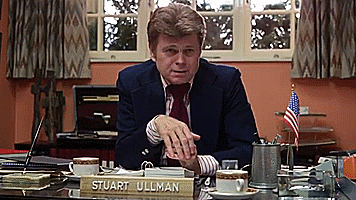
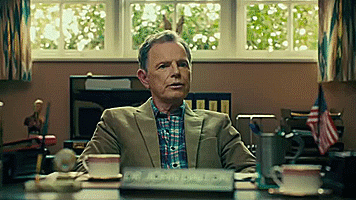
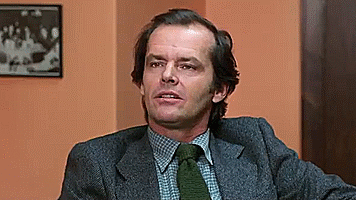
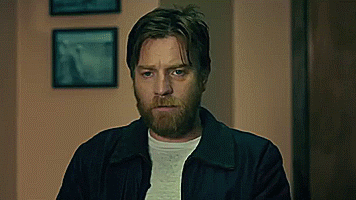
The Shining (1980) + Doctor Sleep (2019)
@ifleeewwwintothetimewar look at this!!
#we see you mike flanagan!!#the shining#doctor sleep#its about the parallels#:O#my gifs#2019#danny torrance#jack torrance#john dalton#stuart ullman#stephen king#the flag the cups the framing just everything!!#mike flanagan#the fuck!!
671 notes
·
View notes
Text
My fancast for a remake of The Shining
Jack Torrance: Keanu Reeves
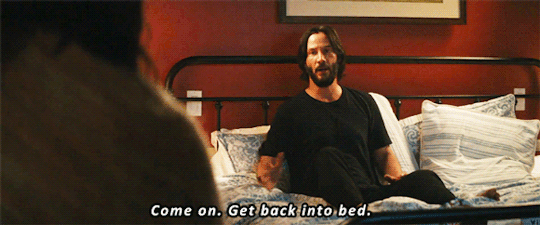
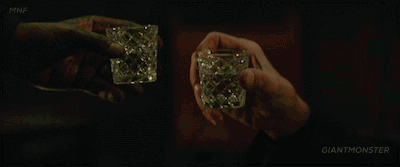
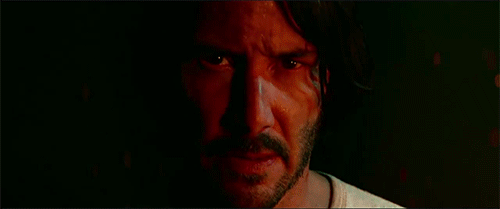
Wendy Torrance: Winona Ryder (sorry not sorry for pairing her with Keanu they have good chemistry)
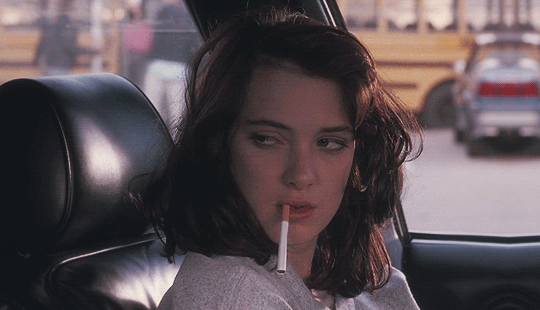
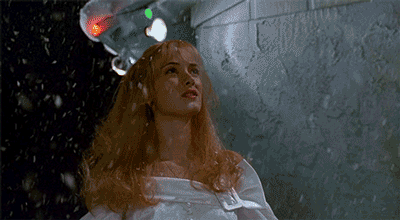
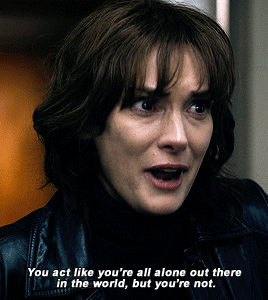
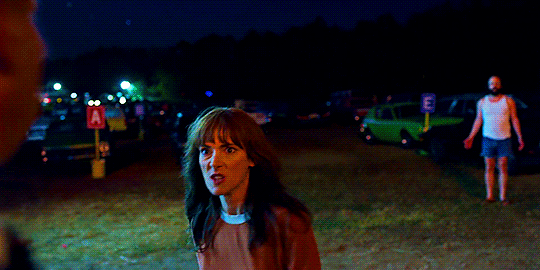
Danny Torrance: Jackson Robert Scott
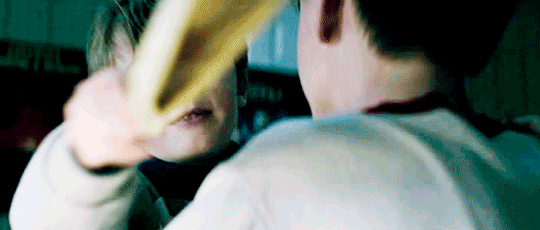
Dick Hallorann: James Earl Jones
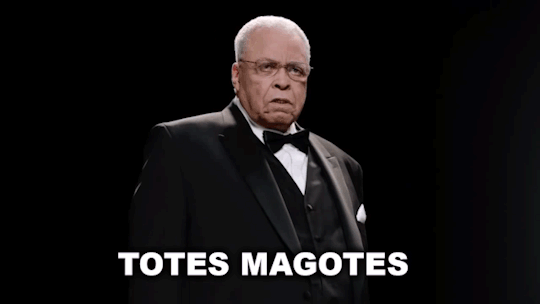
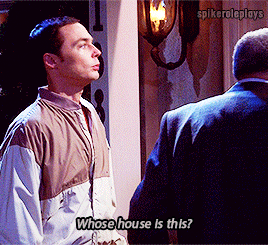
Tony: Thomas Brodie-Sangster
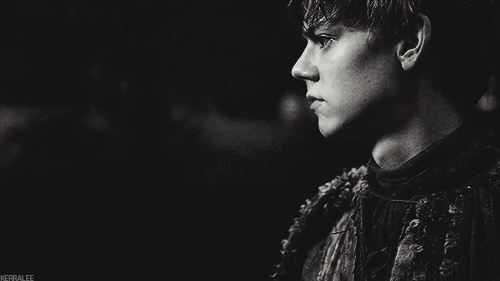
Stuart Ullman: Chyenne Jackson
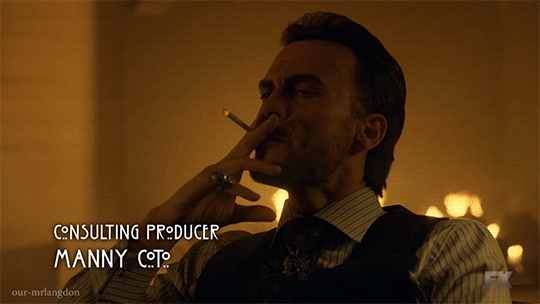
Watson: Clint Eastwood

Mrs. Massey: Uma Thurman
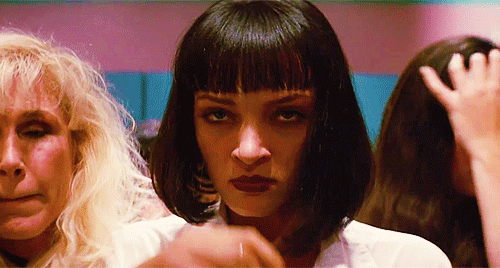
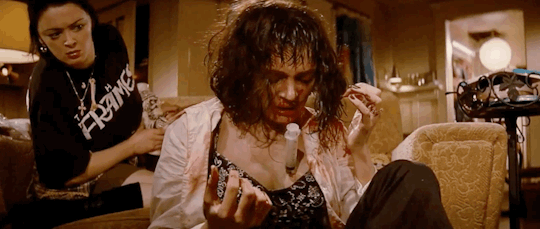
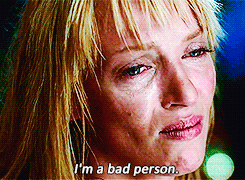
Delbert Grady: Gary Oldman doing whatever performance he did in Léon the Professional
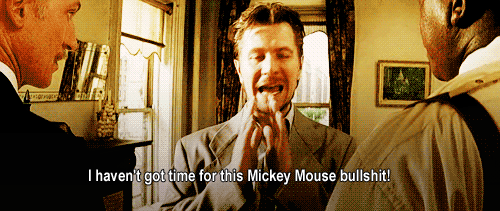
Horace Derwent: Anthony Hopkins
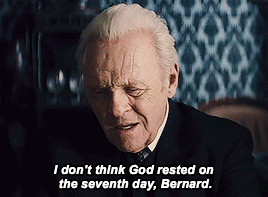
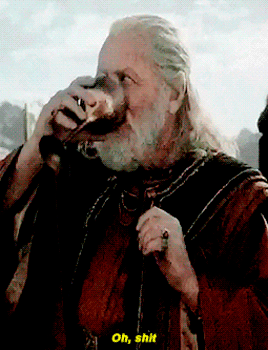
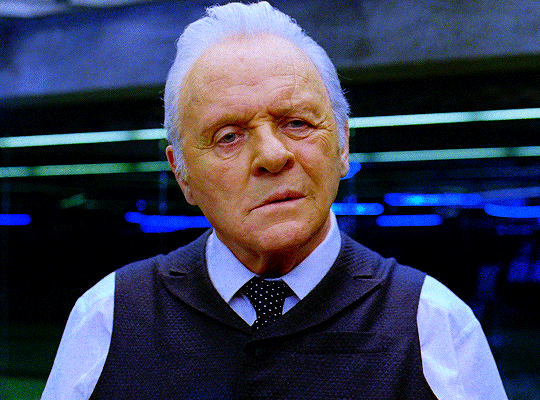
Feel free to add characters I missed
#OOC#The Shining#Jack Torrance#wendy torrance#Danny Torrance#tony#dick hallorann#stuart ullman#watson#mrs massey#delbert grady#horace derwent#keanu reeves#winona ryder#jackson robert scott#thomas brodie-sangster#chyenne jackson#clint eastwood#uma thurman#gary oldman#anthony hopkins
92 notes
·
View notes
Photo

6 notes
·
View notes
Text
The Shining Fancast
Since we are seeing a resurgence in Stephen King adaptations and since IT is getting remade, I think it would be best to fancast The Shining :D note. it’s important to know that this version would follow closely to the book’s story as possible, to Jack being a good man who made mistakes and trying to be good while the hotel drives him to madness, the hotel trying to posses Danny and to Jack sacrificing himself to save Danny and Dick living.
Ideal director Guillermo del Toro or Mike Flanagan
Screenplay writer:Stephen King and Mike Flanagan
Composed by The Newton Brothers
David Harbour as Jack Torrance

Margot Robbie as Wendy Torrance

Roger Dale Floyd as Danny Torrance

Carl Lumbly as Dick Hallorann

Doug Jones as Lloyd The Bartender

Mads Mikkelsen as Delbert Grady
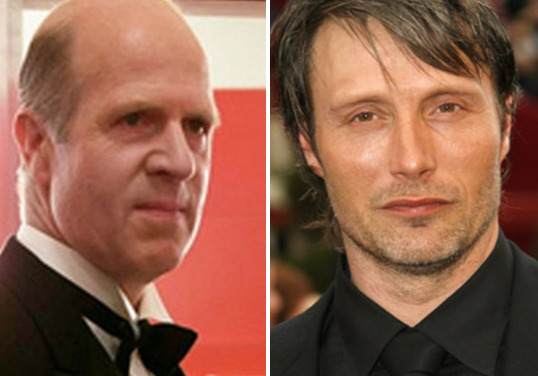
Lucy & Josie Gallina as The Grady Twins
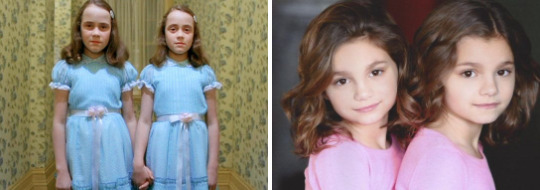
Robert Redford as Stuart Ullman
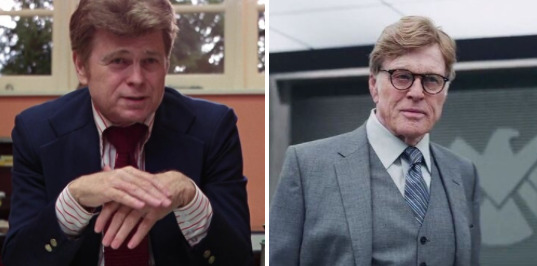
Ana de Armas as the young woman from Room 217
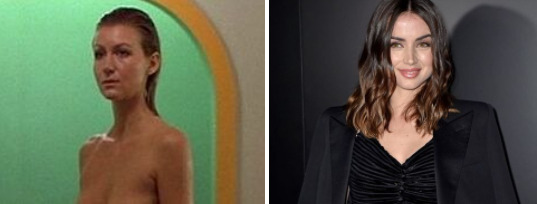
Kathy Bates as the old woman from Room 217
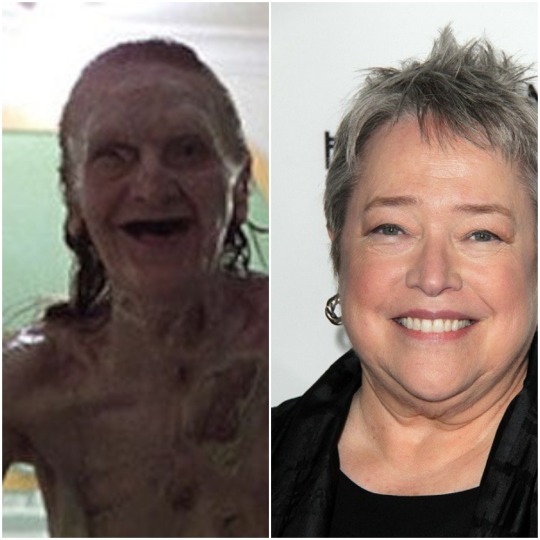
#The Shining#Fancasts#Stephen King#Horror#Jack Torrance#Wendy Torrance#Danny Torrance#Dick Hallorann#Lloyd The Bartender#Delbert Grady#Stuart Ullman#Room 217
17 notes
·
View notes
Text
Adam Ant in 'Live Aid '85:
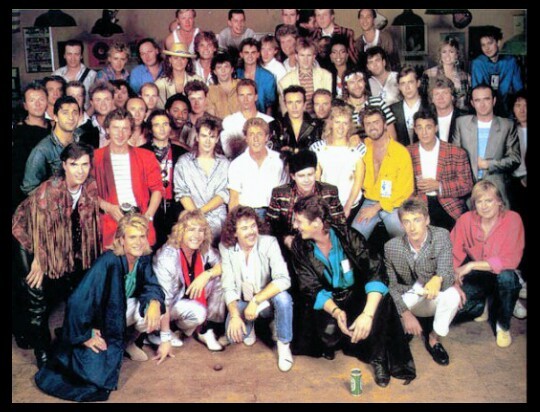
🌟Live Aid Wembley Family Portrait, 1985🌟
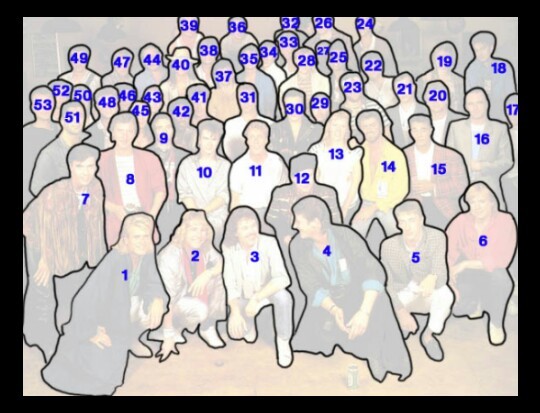
01. Steve Norman -(Spandau Ballet) 02. Rick Parfitt -(Status Quo) 03. Alan Lancaster -(Status Quo) 04. Tony Hadley -(Spandau Ballet) 05. Paul Weller -(The Style Council) 06. Justin Hayward -(The Moody Blues) 07. John Keeble -(Spandau Ballet *Drums*) 08. Kenney Jones -(The Who) 09. Nils Lofgren. 10. Nik Kershaw. 11. Roger Daltrey -(The Who) 12. Elton John. 13. Hazel O’ Connor. 14. George Michael. 15. Andrew Ridgeley. 16. Francis Rossi -(Status Quo) 17. Pete Kirsher -(Status Quo) 18. Matthew Seligmann -(David Bowie *Bass*) 19. Tessa Niles -(David Bowie *backing vocals*) 20. John Lodge -(The Moody Blues) 21. Mark Brzezicki -(Big Country *Drums*) 22. Neil Conti -(David Bowie *Drums*) 23. Fish -(Marillion *singer*) 24. Camelle Hinds -(Style Council) 25. Helena Springs (David Bowie *Backing Vocals*) 26. Mick Talbot -(The Style Council) 27. Unknown12. 28. Howard Jones. 29. Midge Ure -(Ultravox) 30. Adam Ant. 31. Sting. 32. Steve White (The Style Council *Drums*) 33. Keith Airey -(Nik Kershaw *Guitar/ Keyboards*) 34. Dennis Smith -(Nik Kershaw *Bass*) 35. Mark Price -(Nik Kershaw *Drums*) 36. Steve Sidelnyk -(The Style Council *percussion*) 37. Pete Briquette -(The Boomtown Rats) 38. Tim Moore -(Nik Kershaw *Keyboards*) 39. Simon Crowe -(The Boomtown Rats *Drums*) 40. Tracey Ullman. 41. Stuart Adamson -(Big Country) 42. Tony Butler (Big Country *Bass*) 43. unknown25 44. David Gilmour (Pink Floyd) /Bryan Ferry (Guest : Guitar) 45. Chris Cross -(Ultravox) 46. Warren Cann -(Ultravox) 47. Roger Taylor -(Queen) 48. Gary Kemp -(Spandau Ballet) 49. Gary Roberts -(The Boomtown Rats *Guitar*) 50. Bruce Watson -(Big Country) 51. Chris De Niro -(Adam Ant *Bass*) 52. Martin Kemp -(Spandau Ballet *bass guitar*) 53. Billy Currie (Ultravox)
⭐Here in the video:
🎤Band Aid - Do They Know It's Christmas? (Live Aid 1985)🎤
⭐Photo credit and information to:
liveaid.free.fr
#adam ant#stuart leslie goddard#live aid#wembley#on stage#Video#80s#80s music#Vive le rock#bob geldof#live aid 1985#queen#spandau ballet#sting#paul mccartney#ultravox#the who#pink floyd#david gilmour#stuart adamson#david bowie#status quo#elton john#george michael#nik kershaw#steve norman
100 notes
·
View notes
Text
The American Trilogy

People have said that Stanley Kubrick’s final 7 films are more like 1 film about humanity spanning different genres. It’s undeniable that there are specific parallels and connections between his films, but the way his films connect to each other on a basic level is quite interesting and not very difficult to see.
Dr. Strangelove ends with nuclear bombs destroying the world cut to the black void of 2001; The Dawn of Man. The end of the world caused by man’s violent nature transitioned into the beginning of man’s violent nature with Moonwatcher discovering the bone as a weapon.
2001 ends with the Starchild looking directly at the camera; at us, while A Clockwork Orange opens with a closeup on Alex’s eye. A transcended soul cut to a devilish man. The eye was a very potent symbol within 2001, representing the vast exploration possible inside oneself. The eye continues to be important in Clockwork, especially with Alex’s stigmata eyeball cuff links, strengthening the comparison to the godlike Starchild and Jesus Christ dying on the cross as a man, transcending to a God. Alex does not transcend, he lives on to do the deeds of evil men.
A Clockwork Orange, set in a near future or alternate reality, ends with an offer for Alex to move his way up the societal ladder by aligning himself with the same corrupt politicians who used the Ludavico technique on him in the first place, then a daydream with Alex surrounded by what look to be noble men and women of a past era observing him in a sexual act with a woman. The next film, Barry Lyndon is a period piece that explores the issues of class in 18th century Europe and trying to better oneself by moving up in the classist system. Clockwork is a story about where society is now (or was then), while Barry Lyndon explores where society was within the period piece genre. Interestingly enough not much has changed. Both world’s are violent, full of wealthy people using lower class people to further their own agendas, the people at the bottom forced to scratch their way to the top of a corrupt system, often using nefarious techniques to get ahead.
Kubrick is trying to communicate the way society / humans are and have always been while connecting the films with transitional elements that bring this idea into the viewer’s subconscious.
I believe those films, are also connected to the final three in Kubrick’s portrayal humanity and the way he sought to hold a mirror up to us via the cinema screen. However, The Shining, Full Metal Jacket, and Eyes Wide Shut seem to have a deeper connection to each other than the previous films. Yes, they too are an exploration of genre, using the conventions of it to subvert more complex themes, but I feel Kubrick started to develop ideas on how to thematically connect these films on an even deeper level throughout the 20 year period spent completing these three.
I suggest that the final three films act as a trilogy, exploring the genocide America was built on and the ideals of which continue to permeate through our society. These films are his ode to America’s dark secret hidden in plain sight. Not since Dr. Strangelove had he made a movie even based in America. These final 3 are inherently American films. While Strangelove was an overt criticism of authoritarian power, the final trilogy shrouds itself in a ghost story, a war epic, and a sexual thriller in order to issue Kubrick’s vicious critique.
Just to caveat, I don’t think the final trilogy are ONLY critiquing America but I do think this is crucial in all three films, more so than his others excluding Strangelove. 2001, Clockwork, and Barry Lyndon are more overtly commenting on humanity and culture in general.
Let’s get into how the final 3 specifically do this. I’m going to breeze by a lot of basic info that any Kubrick obsessive should already know.
The Shining references Native Americans constantly, the hotel is built on an “Indian burial ground” and had to repel Native American attacks while building the Overlook. There’s a ton of info on this out there already so I don’t feel it necessary to explain all the evidence to support this, but it’s overtly injected into the film, barely under the surface. There’s also a ton of material to support the idea that the hotel itself represents America and it’s constant ability to “Overlook” the horrors that our society is built on. Stuart Ullman, the Hotel Manager has an American flag on his desk, echoing his jacket and tie with an American eagle statue poking out form behind his head (Symbols related to characters’ heads are important in Kubrick’s work). In a film where mirrors are also important his initials backwards are US. The Shining is about the bloody birth of America and the generational inheritance of said violence. To see these things, one has to use their own ability to Shine and see through the veil of genre.
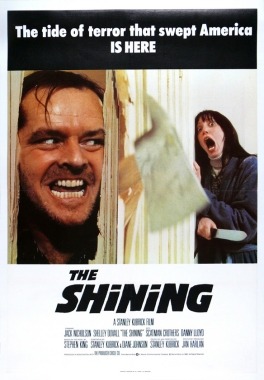
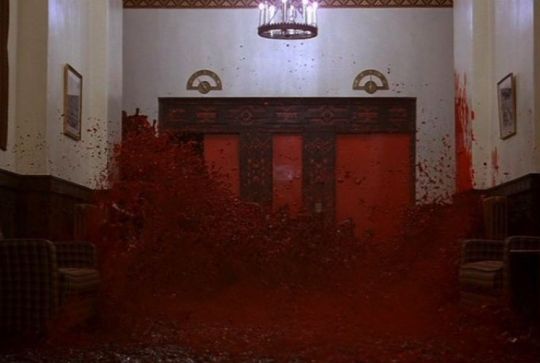
The next film is Full Metal Jacket, based in the Vietnam War. The film starts out with soldiers getting their heads shaved, representing the first step in their dehumanization at the hands of the U.S Military. Vietnam is not considered a just war and is an obvious extension of the genocidal characteristics America was born into. America is still doing the same thing that The Shining represents; going into a place full of brown skinned people and wreaking havoc for their own benefit and seemingly justified by racial bias. Vietnam is truly the beginning of a modern genocide, justified by politics, fear, money, and propaganda. This film came out in 1987, 12 years after Vietnam ended, but interestingly enough 3 years before another example of this American Imperialism; The Gulf War. Full Metal Jacket makes us look at something inhumane that just recently happened and yet most people remember the drill Sergeant yelling hilarious obscenities at the soldiers, many thinking the second half of the film as inferior to the first. As horrific as the dehumanization process of bootcamp is, it’s easier to watch than the reality that happened in Vietnam. In the film’s major battle sequence, we see multiple solders die, wasting hundreds of rounds only to find one young girl to be their target. This is the reality of Vietnam. Note the poster’s reference to Joker’s helmet, BORN TO KILL, relating to both the birth of America and the eagle behind Ullman’s head, turning him into a literal figurehead of this inherited American violence.
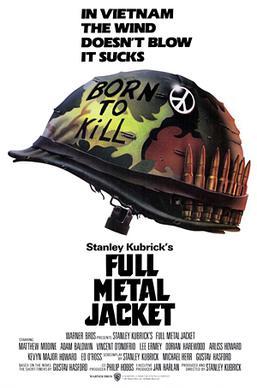
Eyes Wide Shut continues this theme from the perspective of someone living their adult life in post Vietnam society. The modern genocide has turned war into a commodity and has shown the darkest side of capitalism. Bill probably was too young to go to Vietnam but would be a first generation adult starting a family post Vietnam (meaning he was old enough to experience Vietnam as a child but not old enough to go).
Coincidentally enough, when EWS was released in 1999 the US were only a few years away from yet another unjust conflict in Iraq based on lies with huge non-compete contracts handed out to companies that the G.W. Bush administration had personal and financial connections with. It’s also interesting to note that although this couldn’t have been intended by Kubrick, the themes of generational violence being passed down through the generations connects to George Bush starting an Iraq war in the 90s while just over a decade later his son would do that same. Kubrick saw humanity in such a deep way, the good and bad, that he’s almost seen the future through his exploration of complex themes. Sadly though I don’t believe he was psychic, but purely able to to see the reality of cycles we humans perpetuate throughout time.
Eyes Wide Shut is about modern society’s classist structures and how someone like Bill Harford could be so oblivious to the dangers that surround his lovely life and how easily that can be taken away by his own inability to see himself and the various social constructs he participates in. He is blind to the world, happy as clam to live an upperclass Manhattanite lifestyle. This is inherently connected to the more overt violent themes in the previous two films. There is a cultural genocide perpetuated by the richest people who use others like pieces on a chessboard; built off of the original sin of America’s treatment of the Natives and continued through our unjust wars of today, finally providing the power structure for a few people to wield over the rest. Money in Eyes Wide Shut is equivalent to the axe in The Shining, the rifles in Full Metal Jacket. The first line in Eyes Wide Shut is, “Honey have you seen my wallet?”. This is no accident, it’s a seemingly insignificant line of dialog that immediately begins to beg you to pay attention to this theme.
- From The Shining: ULLMAN: We had four presidents who stayed here, lots of movie stars. WENDY: Royalty? ULLMAN: All the best people.
See my post on “All the best people”
18 notes
·
View notes
Text
The Interview Went Fine - Jack Torrance x Reader [Smut]
Synopsis: You're the assistant of the man interviewing people for positions as the winter caretaker here at the Overlook. One man catches your attention.
Notes: HAPPY 82nd BIRTHDAY JACK. Ah I'm in such a Jack mood. Thanks to @tats-kisses-and-horror haha 😘 Also slight warning for cheating, the whole fic is an affair.
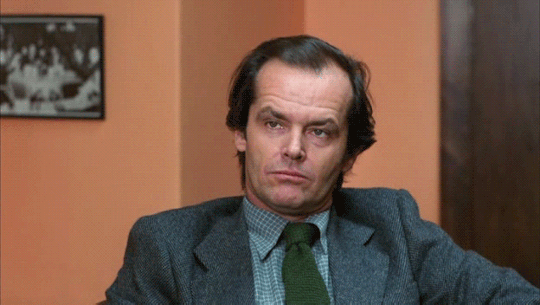
"I don't suppose they, uh... told you anything in Denver about the tragedy we had up here during winter of 1970?"
Your boss, Stuart Ullman, sits behind the desk. You, dressed in your secretarial uniform of a blouse and pencil skirt, sort through the file for one Mr. Jack Torrance, candidate for the job. Curious, you tune into the conversation to hear his answer.
"I don't believe they did."
Liar.
"Well," Ullman goes on, hesitation evident in his voice, "Our predecessor suffered some kind of mental breakdown. He ran amok, and uh..." You look away. Why did Ullman always have to tell this story? "...killed his family with an axe."
Jack takes some time to process this, and you use that time to watch him. He's got interesting features-- high brows, sharp eyes that seem to stare into you, and hands that you can't take your eyes off of. He's attractive... at least, you're attracted to him. But the look he had given you earlier was salacious, and he seems like every other man that ever wanted a look up your skirt. Besides, he's married. Just like every other man who wants you!
Still--
"Well. That is, uh... quite a story." He laughs, diffusing the tension, and you and Ullman laugh with him. "What do you think about that, sweetheart?" Jack turns to you. "Hm?"
"Oh, she's heard the story a hundred--" Ullman starts.
"It intrigues me," you tell Mr. Torrance, never breaking eye contact. "What would make a family man snap like that?"
"I guess certain conditions can drive a man to do lots of things he wouldn't normally do," Jack answers you, then finally breaks your gaze. "Of course, that's just my two cents of a look into a... deranged murderer's head." Everyone laughs at the absurdity, but Mr. Torrance's eyes never leave you, even as you busy yourself again.
Ullman raises his eyebrows at the two of you, and gets up.
"I'm going to get the lower level ready to show you, Jack. You two hang tight til about 12:30, will you?"
"That'll be fine," Jack smiles, folding his hands in his lap. You keep your back turned and head into the next office room, chewing on your lip.
---
As you get the papers together for him to sign, you feel someone press up behind you, invading your personal space. His hands come to rest on your shoulders, and you turn ever so slightly.
"Mr. Torrance?"
"Yes, doll?" His voice is gravelly smooth in your ear, and you can hear his smile. You fight the urge to grind your ass back into his obvious erection.
"What do you think you're doing?"
"Well..." One of his hands travels down your arm. "I was thinking. I don't have to be home til late. It's, oh..." he checks his watch, "Just gone noon. Why don't we head upstairs, and you... give me a little tour of the second floor bedrooms. Now how about that?"
You inhale, trying not to let his voice get to you. You turn, back to the desk, pressed against it by the writer's proximity.
"You're married."
He backs off a little, and it's as if a dark cloud takes over his face. He sullenly glances away. "Could someone not remind me of that fact for one fucking second?!" He softens a little. "It's not the same as it was. You don't understand-- I haven't had my wife for nearly a year. Almost a year now it's been. Could you imagine what that's like for a man?"
"Most likely just as bad as it is for a woman," you sigh, and brush past him. He lets you go, but follows you into a different room.
"So you're looking for a little too."
"I never said that."
"You understood my frustration."
"I'm empathetic," you try to sound stern, but Jack seems to catch the little hitch of your breath. He starts to smirk, and you feel a little weak. You can't deny it. You are attracted to the man, but he's an insufferable, entitled ass. With a great ass. And a sizeable bulge, packed into tight blue jeans. And really fucking sexy eyes, that are currently undressing you. Desire takes over, and you can't seem to rationalize anymore. Married was he? Your vision fogs until all you can see is Jack, walking toward you, feeling his hands on your arms again, only this time he's doing it with intention. You moan softly, and just as he gets to your skirt, he drags a thumb across your chin.
"Now despite what you may think, I'm not that kinda guy. I won't touch what isn't mine to touch, babygirl." He gives one of those wide, splitting grins, and you bite your lip.
"Do it."
That's all he needs. In a fluid motion, he bunches your skirt up, and lifts you onto the table easily, fitting himself between his legs. You tilt your head back, and he holds you by the arm as you grind your panties against his clothed bulge. He looks down at his corduroy pants, at how a wet spot it forming where you're dragging.
"That's really something, darling," he muses, groaning softly, then stalls your movements, pressing a hand to your crotch. He then starts to drag his finger up and down, brushing your clit, massaging just around your entrance. You clench for him.
"You think you're ready for daddy?" he whispers, and you sigh.
"Yes, Mr. Torrance."
"Hm. I like this Mr. Torrance thing, Miss (y/l/n). See, it makes me feel important."
"Yes, sir."
He bites his bottom lip, glancing down at you. He wants you bad, you can tell by the way he's staring hungrily, and you can't say you're far behind him.
"When does that fuck Ullman come back?"
"He'll be finished preparing the boiler room for a tour in probably," you take Jack's wrist, checking his watch, "Ten minutes."
"Think he can hear us from down there?" Jack asks, rocking his hips a few times into you, grinding himself against your clit. You nearly moan again, but bite it back.
"I... couldn't say."
"Let's see if we can't get the shit back up here to check, the uh... strange noises," he chuckles. "Ghosts are the least of his problems."
You giggle, and he reaches down, palming himself with a moan before taking himself out. You lick your lips, and lean back on your forearms on the table as Jack pulls your hips down, fitting himself inside you.
"Fuck," you hiss, "Yeah."
"Good?" he breathes, wincing.
"Uh huh."
He huffs as he draws out and gives a good thrust back in, belt jangling. "Now remember what I said, doll. It's been a while. Don't expect me to be Superman here."
You moan, feeling him stretch you. "Tha-that... that's okay... daddy..." you whine, and he smiles, gently rubbing a hand up your torso.
"What a pretty little whore you are."
"Ohgod," you murmur, eyes slipping shut. He's building you fast.
"H-he'll hear us."
"So what..?"
"N-no Jack, he will!"
"As long as you keep making those fucking noises, then yeah, sweetheart, he will."
You try to keep quiet. "Sorry daddy."
His aggravation blossoms into a full grin. "Not to worry. Daddy'll always forgive his girl. Plus, I thought we were trying to give him ideas. Maybe next he'll hire the Ghostbusters."
You both laugh darkly as he continues to pound you. Your hair is stuck to your neck, and he has his own sheen of sweat glistening. You grip on to burgundy jacket, and his hips stutter.
"Mmf," he mutters, and turns you around so you're bent over the table. He uses both hands to knead your ass as he fucks you even harder, and you can't help it-- you let out a loud moan of his name.
He gives your ass a sharp spanking. "Look at you now. Mrs. I don't want you to fuck me, Jack. Little miss refuses my advances then drops her panties like a wanton slut."
You reach back and take his finger into your mouth coyly, giving him doe eyes from where your head is turned back and pressed into the table. He groans, hips stuttering once more and eyes rolling back. Before he can pull out, he comes hard inside you. You gasp, feeling his cum leaking out of you, and climax as well, holding onto the table.
You both breathe heavily as you recover from the quickie.
"I'm sorry," he says quietly, "I really didn't mean to finish in you. I really meant to get offa you in time--"
"Hey," you smirk, "It happens."
"Yeah. Well, so do kids," Jack mutters, rolling his eyes as he smoothes back his messed up hair, "Or as I like to call them, happy little accidents!"
You maintain your smile, tugging down your skirt. "I'm on the pill."
He huffs a sigh of obvious relief. It made sense-- he does have a wife, and he already has a kid. He gives you one last up and down, then smacks your ass.
"Feel free to drop by the hotel anytime this winter. I hear it gets cold, so, uh..." He nods down to your peaked nipples, "Wear a fucking bra this time, and I'll supply the snowplow to get you home."
You laugh at his joking as he leads you by the arm out of the small office. Ullman comes up the stairs from the boiler room to see you holding onto Jack's arm. He gives Jack a cold stare.
"Better acquainted now, are you?"
"Oh, sure." Jack nods, giving a big, fake smile. "(y/n) makes one helluva cup of coffee."
You all laugh politely, voices echoing in the vast, empty lobby of the Overlook. The two of you follow along behind the boss, as Jack's hand slides up your back.
#jack torrance#jack torrance x reader#slashers#slasher imagine#jack torrence x reader#reader x jack torrance#the shining#the shining 1980#horror film#horror films#horror film fanfiction#the shining fanfiction#stanley kubrick#jack nicholson#jack nicholson x reader#reader x jack nicholson#slasher x reader#smut#jack torrance smut#the shining smut#scary movies
544 notes
·
View notes
Text
The Shining, Part 2: Hope I’m Not Overlook-ing Anything

(Scroll down to read part one if’in ya haven’t yet)
Besides the Colorado Lounge, we are introduced to the Gold Room fairly early on, during a tour led by the Overlook’s manager, Stuart Ullman (a very merry Barry Nelson). “Pink and gold are my favorite colors,” Wendy (Shelley Duvall) states happily to Stu, but didn’t appear to catch that same vibe off the caretaker’s apartment. This careless little corner is decorated in hepatitis yellow and whytepeeple-flesh pink, and you can almost feel your skin drying up in that attic air. It’s somehow even more depressing and claustrophobic than the apartment the Torrances just left behind.

Put a good face on it and smile, kids!
The Gold Room is pretty ballin’ though, and even more so once the ghosts arrive to zhuzh up the place a bit. The female guests seem to be wearing a lot of gold or champagne gowns, and that color coordination continues down to the yolky Advocaat drink that Grady (Philip Stone) spills on Jack. That drink is basically a Dutch cross between eggnog and custard, and “tends to stain,” says Grady as he whisks Jack off to that terrific red men’s room.

I was musing earlier about how the Overlook’s layout helps to build up a feeling of unease. But what unfortunately fails to build up to anything is Jack Nicholson’s performance. Stephen King was apparently unhappy with Kubrick’s casting choice; King argued for Jon Voight or a likewise dad-ish actor who could emit a more benign vibe. Ultimately, King wanted someone who read a little less “Cuckoo” than Nicholson, and upon this latest re-viewing, I think I rather agree with King. There is no descent into madness with this Jack, but rather a tiny trip over a curb and boom! Straight to crazy town. Nicholson’s Jack Torrance goes from white knuckles to wholly terrible so fast, it doesn’t give you much sympathy for his character. I remember at my first viewing, I thought that Danny (Danny Lloyd) was supposed to be Jack’s stepson, because Jack’s character seemed so completely disconnected from his son from the very start. You infer early on from Wendy that the family appears to be running from a pattern of alcoholism and child abuse. While I think this backstory informs her character’s initial passivity (which later develops into incredible strength), I’d still rather that the hotel is the bad guy in this flick, an entity preying on the weaknesses of an ordinary family man. Oh damn... I think this is turning into an argument that The Shining serves as the bridge between 1970s and 1980s horror themes! Supernatural psychosis attacking the safe space, the suburban family displaced into the sinister setting... yup, I think this argument holds water.

But Jack is in fact the bad guy in this flick: while Danny is sensitive to thresholds of the hotel’s dark past, Jack is key in unleashing the horrors, bringing those colors from sepia to Kodachrome. Danny can’t help that he notices the Shine given off by the Overlook, but Jack is an eager participant in his own corruption. I only noticed upon this viewing how much Jack stares at himself in mirrors. There he is in pivotal scenes, sticking out his tongue in the caretaker apartment’s vanity, or mugging in the mirrored backsplash of the Gold Room’s bar, and even making a quick adjustment while chatting with Grady in the red restroom. He only notices that he is making out with a corpse in Room 237 because he catches sight in the bathroom mirror.

But while Jack is gazing at his reflection, unreflected on his increasing insanity, it’s a mirror that pulls the blinders off Wendy. When Danny writes “Redrum” on the bathroom door, and Wendy finally reads it backwards in the mirror, it is just in time. Jackie boy has an axe to grind and is about to do a bit of demo work on the apartment.

But let’s backtrack and talk about Room 237, shall we? I fucking love this room. Everything about it is so pronounced and announced, from the (Hicks-inspired) peacocking carpet to those carnally magenta sofa and chairs, straight to the matching chevron-patterned drapes and bedspread. I also adore the brass-accented furniture and strange stripey cream walls.

Maximalistas, unite! And then of course there’s the bathroom, that amazing combination of cream, gold, and mint walls with sea foam green porcelain fixtures. I mean, it’s best appreciated sans corpse, of course. Oof, I am so ready to shrug off this last decade’s last gasp of minimalism, this tired trend of white white white everything with demure accents of fir or beech wood. Viva la sea foam toilets! Bring on the rose pink sinks! I’m very glad someone out there had the foresight to hold onto that stuff.
The Overlook’s head chef Dick Hallorann (Scatman goddamn Crothers) has some decidedly 70s decorating ideas, which I don’t hate at all. Here’s his awesome bedroom in Miami:

This may seem like a minor detail in the plot, but I think there’s no casual connection between domestic violence and racism in the movie. Grady (who murdered his wife and two daughters) uses a racial slur to refer to Dick, and Jack is pretty fucking unwoke with his “white man’s burden” comment and general shittiness towards Wendy and Danny. And I imagine that this was more Crother’s own cue rather than Kubrick directing, but did you notice that Dick’s character seemed to make himself smaller whenever he had to address a white person? He always assumed a subservient position, slightly bent over, even when dealing with white people beneath his rank at the hotel. There’s a tiny scene where Dick has to call his friend Larry in northern Colorado to rent a Snowcat to get to the Overlook. Larry is also black, and the scene shows Dick easy and relaxed while chatting with Larry, speaking forcefully into the receiver and cursing freely. It’s like Dick’s Miami pad is the true version of the character. Dick has had a lot of practice hiding his Shine from others, because he must constantly surveil and suppress his own feelings. He is really such an important character, and I am still pretty pissed that the movie kills off Dick (yeah, he survives in the book). Still, I think Kubrick did right by the character, or I guess as well as could be hoped for given the time and circumstances.

RIP, Dick. We’ll never forget your wood-paneled Miami man-cave.
So I bent the rules on this one, but I think it can be argued that The Shining belongs in the archives of iconic 1970s horror film architecture. Next time, though, I’ll be standing on safely 70s giallo ground.
4 notes
·
View notes
Photo

The Trials of Wartime in Ingmar Bergman’s SHAME (’68) by Stuart Collier
The admiring gaze of the aesthete, when aimed at the filmography of Ingmar Bergman, naturally lunges upon THE SEVENTH SEAL (‘57) or PERSONA (‘66), two of his most abstract and abstruse works of primordially imagistic art. But many of Bergman’s greatest and most emotionally demanding works are visceral feats of unadorned realism – works of interpersonal bitterness and vulnerability. With the nether reaches of human misery as his subject, Bergman’s camera maintained a crisply measured distance, gracefully imposing an angular theatrical dramaturgy on the material. Out of this strain comes THROUGH A GLASS DARKLY (’61), SCENES FROM A MARRIAGE (‘73), AUTUMN SONATA (’78) and numerous other masterworks.

Bergman’s SHAME (’68) is an under-discussed masterpiece in his body of work. The reasons for its obscurity are hard to come by – my supposition is that war movie genre expectations inevitably minimize what the film is really up to. SHAME is certainly about war, but not in soldiers, politics or in the ins and outs of combat. Rather, it is about war as an unwelcome fact in the lives of two nonparticipants, a husband and wife played by Max von Sydow and Liv Ullman. As Jan and Eva Rosenberg, two former violinists, Ullman and von Sydow comprise one of Bergman’s great tempestuous married couples. Neutral and non-partisan to a dissonant fault (their coping mechanism seems to be merely to carry on as if the conflict is not happening), Jan and Eva are functionally aligned. Together they work on a small farm and are mutually committed to the persistence of their rustic, whittled-down life.

However, Jan and Eva’s teamwork in clearing the practical hurdles of farmhouse upkeep belies the fact that an unfathomable rift has grown between them, no doubt exacerbated by the bludgeoning warfare that haunts the periphery of their lives. Where Eva is strong-willed and adaptable to the travails of wartime, Jan slips helplessly into pained reminiscence and nervous collapse. There are a number of piquant moments served up by Bergman to articulate this pained relationship. The reluctance of Jan to shoot one of their chickens serves as an illuminating source of contention between the two, while an expertly timed formalist structure in the narrative accentuates Eva’s fraught disbelief in response to Jan’s admission that he is not a determinist, and that perhaps he will have outgrown his selfishness in the weeks or years to come.
Indeed, determinism is of the utmost importance to SHAME, which seems fixated on the question of whether any relationship can remain intact in response to civil war. Are Jan and Eva foredoomed to failure? While the experiential panic of bombs and artillery-fire is one dimension of warfare, the issue is reframed entirely by the introduction of one Colonel Jacobi, played to perfection by Gunnar Björnstrand. For Jacobi embodies military administrative authority, and it is his intrusion into the lives of Jan and Eva that expedites their ruin. The horror of chaos has given way to the horror of power.

In honor of his centennial, FilmStruck has so justifiably decreed Bergman as the Director of the Century. As you make your way through the exhaustive collection of Bergman treasures that FilmStruck has assembled, please keep SHAME in mind. It is, for my money, his most powerful film of the 1960s, a blistering work to presage his tortured output of the 70s.
43 notes
·
View notes